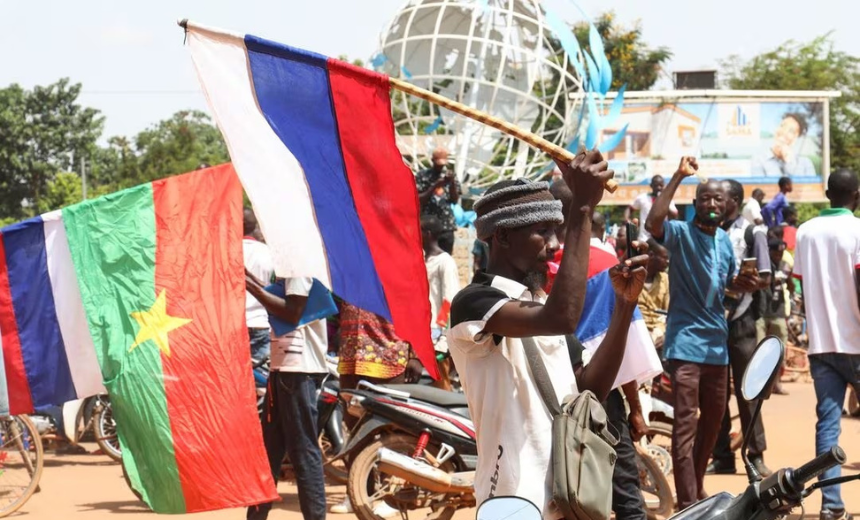A decision by Mali, Burkina Faso and Niger to quit West Africa’s economic and political bloc reverses decades of regional integration, leaving millions of people in limbo, and is likely to deepen the three junta-led countries’ ties with Russia.
The move to withdraw from the 15-member Economic Community of West African States (ECOWAS) could yet take time to implement, opening a door for negotiations.
But, if carried through, it is set to disrupt the region’s trade and services flows, worth nearly $150 billion a year.
It also raises questions over millions of nationals from the three poor and landlocked nations who settled in neighbouring states as the bloc allows visa-free travel and right to work.
Ivory Coast alone is home to more than 5 million people from Burkina Faso, Mali and Niger.
Niger shares 1,500 km of border with Nigeria and 80% of its trade is done with its richer neighbour, said Seidik Abba, president of the Paris-based CIRES think tank Ghana, Togo and Benin also have a big diaspora from Niger.
“If they decide to go ahead and leave, it will become a very big problem, economically and politically, and the stakes are the highest for the people from these three countries,” he said.
More than a dozen analysts and Africa diplomats consulted by Reuters agreed the trio’s stance on ECOWAS underscored tumult across a region where armies have struggled to contain Islamist militants since seizing power in several countries.
Meanwhile, Russia has been extending its influence at the expense of former colonial power France, regional heavyweight Nigeria and the United States.
Earlier this month, Russia and Niger, ruled by a junta since a coup last year, agreed to develop military ties. Russian military personnel flew into Burkina Faso’s capital Ouagadougou last week to ensure the safety of the country’s military leader. Russia’s Wagner mercenary group also has 1,000 fighters in Mali.
MUST READ: Pan African Film Festival: 2024 selections unveiled
The three military-ruled countries jointly announced their departure on Sunday, accusing ECOWAS of abandoning its founding ideals and falling under the influence of foreign powers.
They said the bloc had offered little support against Islamic insurgencies that have killed thousands and displaced over 2 million.
ECOWAS has responded to a wave of coups in the region since 2020 with sanctions that the juntas have called “illegal and inhumane.” The bloc also threatened to use force to restore constitutional rule in Niger, but did not follow through.
On Monday, ECOWAS chair Nigeria said the “unelected” military authorities of the three countries were letting their people down, but added it remained willing to engage with them.
Established in 1975, ECOWAS has sought to promote economic and political cooperation within the fragmented region, home to a mix of former French and British colonies.
Mucahid Durmaz, senior West Africa analyst at risk intelligence company Verisk Maplecroft, said he now expects increased tariffs and new restrictions on the movement of people, goods and money.
The move by the trio is likely the “silliest own goal since the United Kingdom voted for Brexit,” said Charlie Robertson, head of macro strategy at London-based investment management company FIM Partners, referring to Britain’s departure from the European Union.
“The three countries were already among the poorest in ECOWAS, and indeed the world – and leaving won’t help,” he said, adding the trio account for just 8% of the bloc’s gross domestic product.
Under ECOWAS rules, leaving the bloc takes at least a year, so those living outside their home countries should not face immediate consequences.
But in a worst-case scenario, “we could see one of the major movements of people that we have seen in decades – citizens across the subregio…








